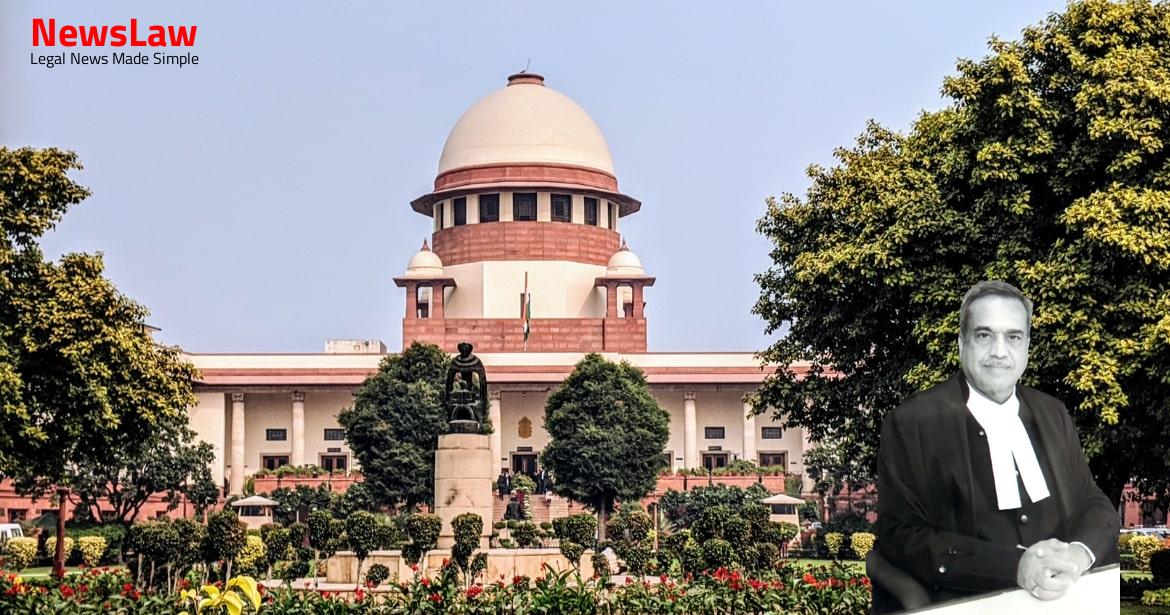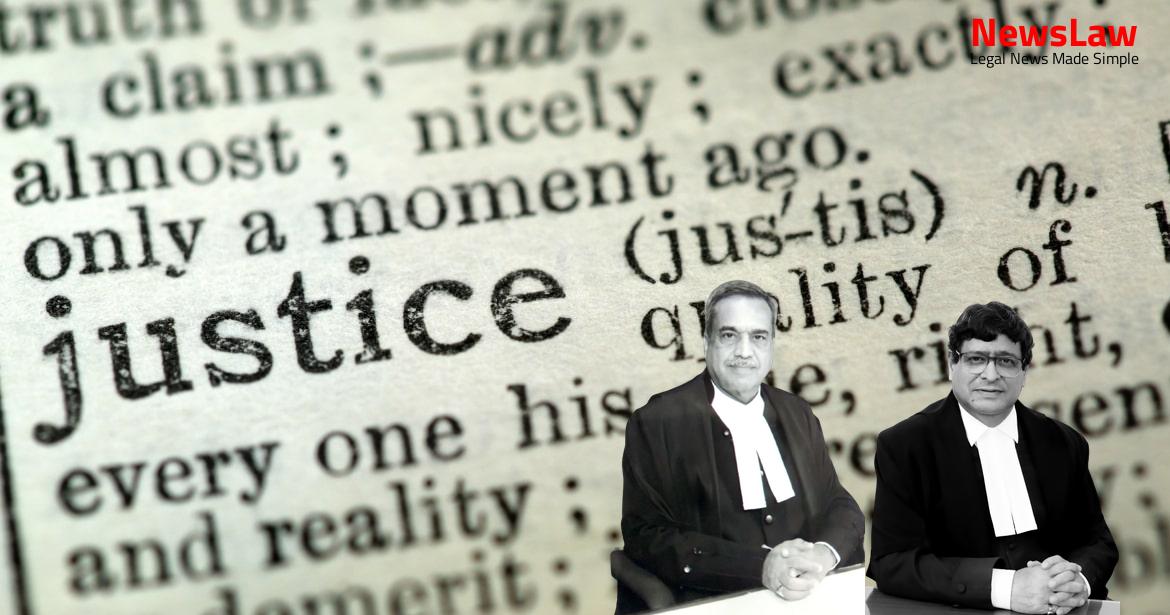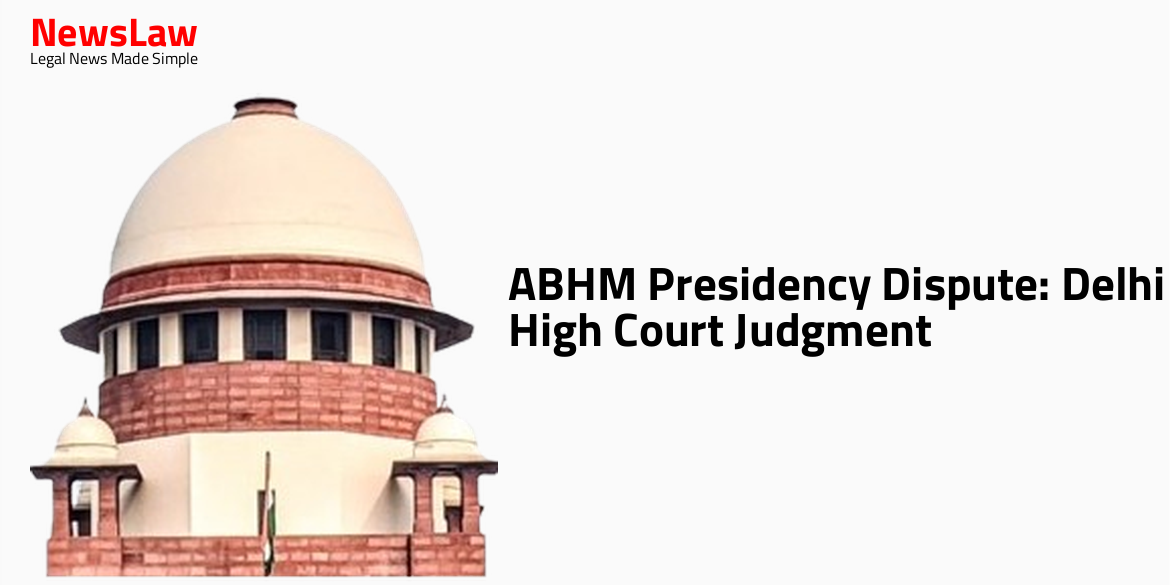Delve into a case where a consent decree in a mortgage property sale through court auction was overturned on fraud allegations. The High Court’s legal analysis scrutinized the authenticity of the decree, leading to significant implications for all involved parties. Discover the intricate legal considerations and the implications of the court’s decision in this intriguing case.
Facts
- The spot sale was held on 11.02.1999.
- The Executing Court cannot question the validity of a final decree.
- The judgment debtors challenged the court auction/sale in 1999.
- The mortgaged property was put up for sale in 1998.
- The plaintiff filed for execution of the decree in 1996.
- The defendants agreed to pay the plaintiff Rs. 2,50,000 in installments in 1995.
- The judgment debtors filed various petitions and appeals challenging different court orders.
- Multiple orders were set aside and remitted for fresh disposal.
- The auction purchaser deposited 25% of the bid amount and obtained the sale certificate.
- The judgment debtors raised objections of fraud in obtaining the decree.
- The High Court called for a report on the decree’s validity based on fraud allegations.
- The High Court ultimately set aside the decree and related orders based on the report’s findings.
- The learned Executing Court dismissed I.A. No 3 of 1999 as the order dated 03.03.1998 overruling the objections of judgment debtors had attained finality and remained unchallenged.
- I.A. No 4 of 1999 was dismissed by the Executing Court because the judgment debtors did not deposit the decretal amount as required by Order XXI Rule 90.
- The High Court dismissed Civil Revision Application No 3700 of 1999, stating that the issue of fraud had already attained finality as per the order dated 03.03.1998.
- Subsequently, after two years, the judgment debtors filed another Civil Revision Application in the High Court challenging the order dated 03.03.1998.
Also Read: Judicial Review of Delayed Writ Petition
Issue
- The central issue in this case is whether the High Court was justified in quashing the consent decree that was obtained in a mortgage property sale through court auction.
- The consent decree had been confirmed in favor of the auction purchaser after overruling objections raised by the judgment debtors, including a claim of fraud in obtaining the consent decree.
- Despite the objections not being challenged at the time of the decree or the subsequent order confirming the sale, the High Court relied on a report from the Principal City Civil Judge to set aside the consent decree.
Also Read: Ownership Dispute: Legal Analysis on Admission and Decree
Arguments
- The Principal City Civil Judge observed that the consent decree was obtained through fraud, indicating dishonest conduct by the defendants.
- The High Court erred in quashing the consent decree and related orders without considering the auction purchaser’s rights who had purchased the property in 1999.
- The judgment debtors delayed proceedings and did not challenge the consent decree on grounds of fraud until 2001, causing further delays for the auction purchaser to enjoy the property.
- The defendants’ attempt to claim the consent decree was obtained by fraud was seen as a dishonest ploy to avoid the decree.
- Despite the auction purchaser fulfilling all requirements and obtaining the property in good faith, the defendants’ actions hindered the purchaser from using the property.
- The findings recorded by the learned Principal City Civil Judge indicate that the consent decree was obtained through fraud.
- The High Court agreed with the Principal City Civil Judge’s findings and set aside the consent decree, quashing the judgment and decree dated 01.06.1995 and order dated 30.10.1999.
- The High Court directed that the matter be remanded to the trial court for a decision on merits.
- The High Court determined that the first appeal against the consent decree was maintainable.
- Given that the consent decree was established to have been obtained through fraud and misrepresentation, it was deemed invalid in the eyes of the law.
- Consequently, all subsequent orders in the executing proceedings were considered null and void and were set aside by the High Court.
- The High Court instructed the Trial Court to conduct an inquiry into whether the decree was indeed obtained through fraud and misrepresentation.
Also Read: Interpretation of Statutory Limitation under Section 263(2)
Analysis
- The High Court erred in relying on the report submitted by the Principal City Civil Judge stating the decree was obtained by fraud since no evidence was led by the judgment debtors at the time of the order dated 03.03.1998.
- The High Court should have followed the procedure under Order XLI Rules 27, 28, and 29 before permitting additional evidence or coming to a conclusion on fraud allegations.
- The judgment debtors were aware of the consent decree at least on 21.06.1996 but did not challenge it on fraud grounds at that time.
- The High Court’s reliance on the report by the Principal City Civil Judge to conclude that the decree was obtained by fraud was not warranted.
- The High Court wrongly observed that the auction purchaser was not a bona fide purchaser; the sale of the mortgaged property was already confirmed and the sale certificate issued when the appeal was filed in 2000.
- The High Court’s decision to call for a report from the Principal City Civil Judge without following the necessary procedures was not appropriate.
- The judgment debtors failed to provide evidence of fraud earlier and did not challenge the order dated 03.03.1998 until the year 2000.
- The High Court’s decision to set aside the consent decree and related orders based on the report of fraud was unjustified as the necessary procedures were not followed.
- The High Court erred in quashing and setting aside the order dated 30.10.1999 passed in I.A. No 4 of 1999.
Decision
- The common judgment and order passed by the High Court in RFA No 274 of 2001, MFA No 3934 of 2000, and CRP No 3297 of 2000 have been quashed and set aside.
- No order has been given regarding costs.
- Both appeals have succeeded.
Case Title: H.S.GOUTHAM Vs. RAMA MURTHY AND ANR. ETC. (2021 INSC 82)
Case Number: C.A. No.-001844-001844 / 2010



